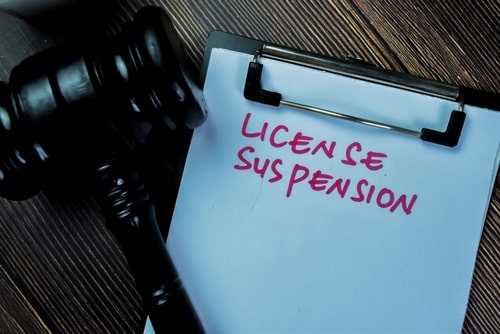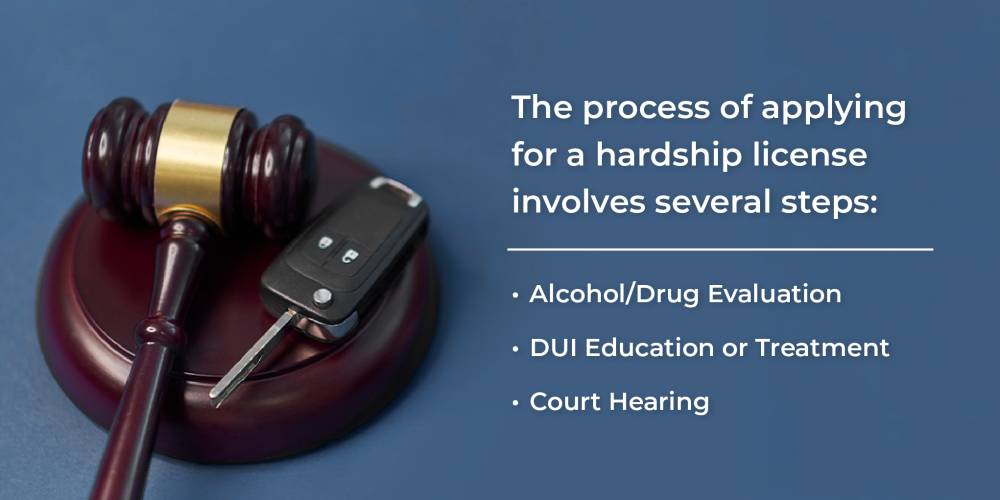
 If you have been arrested for a DUI in Illinois, one of the consequences may be the suspension or revocation of your driver’s license. However, Illinois law offers a potential lifeline in the form of a hardship license, allowing you limited driving privileges under specific conditions. A Wheaton, IL DUI defense attorney can help guide you through the requirements and application for a hardship license. The process may seem overwhelming, but with the right knowledge and legal support, you can regain some driving privileges.
If you have been arrested for a DUI in Illinois, one of the consequences may be the suspension or revocation of your driver’s license. However, Illinois law offers a potential lifeline in the form of a hardship license, allowing you limited driving privileges under specific conditions. A Wheaton, IL DUI defense attorney can help guide you through the requirements and application for a hardship license. The process may seem overwhelming, but with the right knowledge and legal support, you can regain some driving privileges.
A hardship license, also known as a restricted driving permit (RDP), is a limited driver’s license issued to individuals whose driving privileges have been suspended or revoked due to a DUI conviction. Unlike a full driver’s license, an RDP only allows you to drive for specific reasons. Part of the eligibility process is proving that you need the license for things like getting to work or school.
Under 625 ILCS 5/6-208 of the Illinois Vehicle Code, individuals who have had their licenses suspended for DUIs can request an RDP. Some basic considerations include:
Proving a hardship: To qualify for an RDP, you must demonstrate that you have a valid reason to drive. This could include proving that you need to drive for work, to attend school, or for medical purposes. Evidence, such as a letter from your employer or medical documentation, will help substantiate your claim that driving is essential to your daily life.
Age requirements: Individuals under the age of 16 are not eligible for a restricted driving permit, regardless of the reason for the license suspension.
Number of DUI convictions: If you have two or more DUI convictions on your record, you may qualify for an RDP. The state considers multiple DUI offenses as an indication that you need a restricted permit to regain driving privileges under controlled circumstances. Additionally, individuals with two statutory summary suspensions could be eligible for an RDP.
Breath Alcohol Ignition Interlock Device (BAIID): For individuals with multiple DUI convictions or statutory summary suspensions, the installation of a Breath Alcohol Ignition Interlock Device (BAIID) is required. Statute 625 ILCS 5/6-206 mandates that anyone seeking a hardship license after such offenses must have a BAIID installed in their vehicle. This device prevents the car from starting if alcohol is detected in your system, ensuring that you are sober when driving.
Meeting these eligibility requirements is crucial, but obtaining an RDP is not guaranteed. The decision will be based on the evidence you present and the severity of your driving offenses. This is where having experienced legal counsel will benefit you.
The process of applying for a hardship license involves several steps. Each step must be completed thoroughly and on time to maximize your chances of approval.
One of the first steps in the process is obtaining a professional alcohol or drug evaluation. The evaluation must be performed by a certified provider and will assess whether you have a substance abuse problem. Under the Substance Use Disorder Act, alcohol and drug evaluations are a critical part of your application.
If the evaluation suggests that you have a substance abuse issue, you may be required to complete an alcohol or drug education program. This could involve attending a DUI education class or enrolling in a substance abuse treatment program. Proof of completion of these programs will be part of your application for an RDP.
Once you have gathered all necessary documentation, including your alcohol/drug evaluation and any proof of treatment, you will need to schedule a hearing with the Illinois Secretary of State’s Department of Administrative Hearings. The hearing officer will review your driving record and the evidence you provide to determine whether granting you a hardship license is in the interest of public safety.
During the hearing, you will need to demonstrate why you should be granted an RDP and show that your driving privileges should be reinstated under limited conditions. You will likely be asked to explain your need to drive and the steps you have taken to address any substance abuse issues. Your attorney will help you prepare for this by ensuring you present a well-organized case, have all the necessary documentation, and effectively address any concerns raised by the hearing officer. The hearing may be an emotional process, but your attorney will guide you through the process.

Applying for a Restricted Driving Permit (RDP) has several associated costs. First, there is a non-refundable $50 filing fee when requesting a formal hearing to apply for the hardship license. Additionally, if you are required to install a Breath Alcohol Ignition Interlock Device (BAIID), you will be responsible for the costs of installation and maintenance. Installation typically costs between $100 and $150, with monthly maintenance fees around $70 or more, depending on the provider. There are also costs for alcohol or drug evaluations, as well as any required treatment programs. These costs can range from a few hundred to several hundred dollars.
If your driver’s license has been suspended or revoked due to a DUI, consulting an experienced Wheaton, IL DUI defense lawyer at Davi Law Group, LLC is the first step in obtaining a hardship license. The process involved in applying for an RDP can be complex and requires meticulous attention to detail. Attorney Dion Davi, a former prosecutor, offers experienced legal guidance to help you navigate the process. He has been recognized as a Super Lawyer since 2015 and a Law Bulletin Leading Lawyer from 2015 to 2020. Additionally, the firm holds the highest possible Avvo rating, indicating "Superb" service. Call 630-580-6373 today for a free consultation in English or Spanish.
 A lawyer’s time and advice are his stock and trade.
A lawyer’s time and advice are his stock and trade.